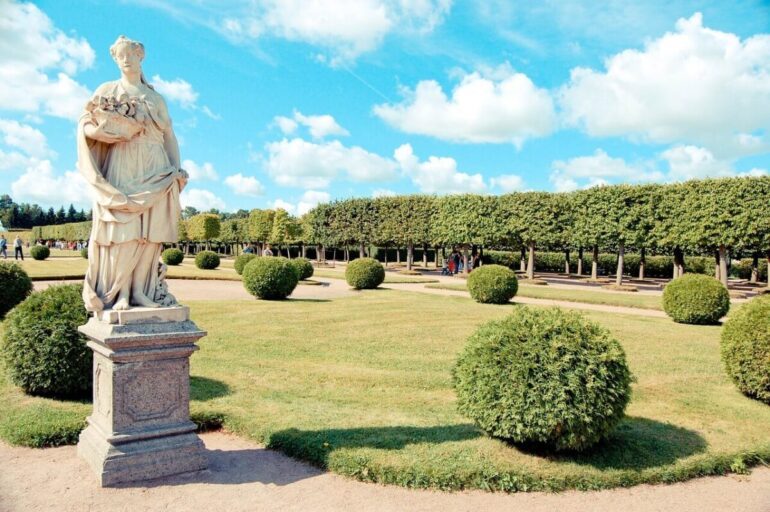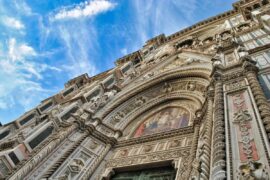The Best Parks in Florence
You may think that with so many historic squares and extensive art collections, Florence may be lacking in green spaces but gardens abound in the cradle of the Renaissance if you know where to look. You can stroll through historic gardens, read a book amongst the flowers or take in the numerous panoramic views over the city in any these delightful havens. Whichever garden calls to you, think of this guide to Florence’s gardens as your passport to a nature escape without ever leaving the city.
Boboli Gardens: Grand, Historical Gardens of the Medici Dukes
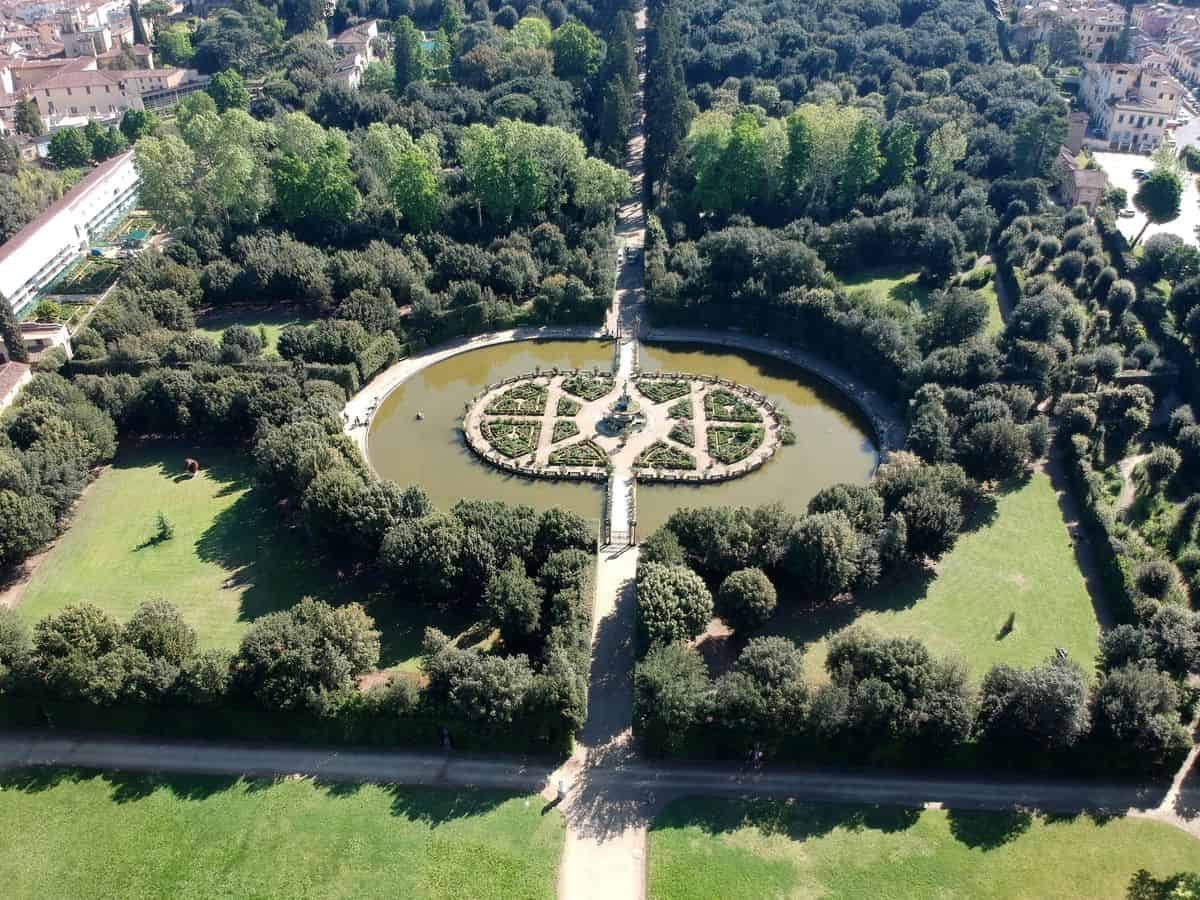
The Boboli Gardens or Giardino di Boboli are the most famous and grandiose in Florence. Founded by the Medici family in the 16th century to add further luxury to their newly acquired Pitti Palace, this garden seeks to impress with its open-air amphitheater, wide boulevards, large manicured fields, and fountains dedicated to gods like Neptune and Ocean. The statuary dates from ancient Rome and Renaissance times though there are some modern elements like a 1997 piece by Igor Mitoraj. The Medici Dukes and the later Habsburg-Lorraine dynasty that expanded the gardens were not seeking a quaint and private corner of nature to call their own but rather a sweeping piece of landscaping that would impress visitors with its scale and majesty. These gardens require an entry ticket and can be combined with a visit to the numerous art galleries in Palazzo Pitti – as long as you’re up for a lot of walking!
Four entrances: Piazza Pitti Main Entrance, Porta Romana, Via Romana 37/A and Belvedere Fort entrance
Open every day: 8:15 until 4:30 (Nov-Feb), 5:30 (March & Oct), 6:30 (April-Sept). Closed first and last Monday every month, Jan 1, December 25
Ticket: €6, reduced €2 (subject to seasonal changes)
www.uffizi.it/en/boboli-garden
INSPIRATION
10 Must Sees In Florence’s Uffizi Gallery
Bardini Gardens: Florence’s Best Kept Secret Garden
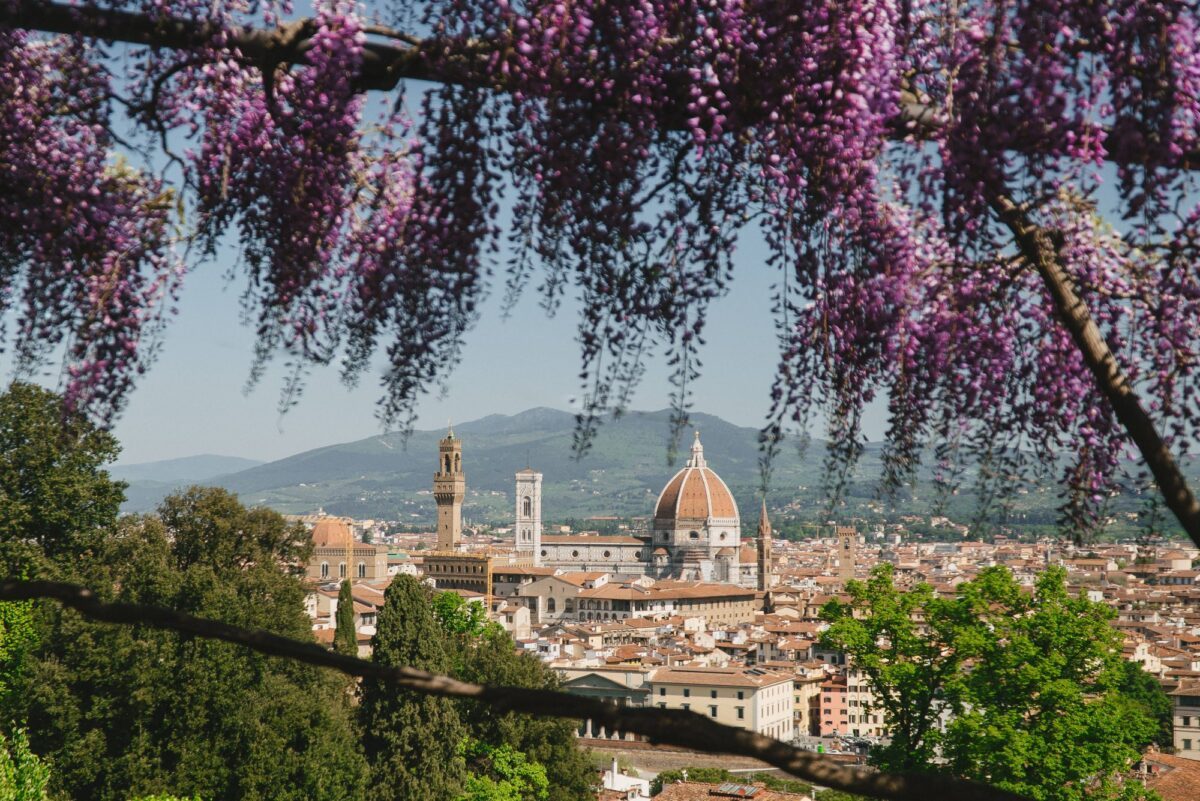
After years of neglect, these gardens, built onto a high sloping hill on the Oltrarno, underwent an extensive restoration begun in 2006 that has restored this magical corner of Florence to its historic beauty. With one of the best views over the city, it still remains somewhat undiscovered in comparison to the blockbuster Boboli gardens nearby. That anonymity is only a plus for any visitor that wants to explore the enchanting collection of hidden corners in the Bardini Gardens.
While the area was an agricultural space in the Middle Ages, the garden owes its name to Stefano Bardini, the early 1900s antiquarian who entertained guests here before taking them to shop his collection (some of which is now housed in the Bardini museums). Bordered by the medieval walls of the city, you can climb the grand Baroque staircase in the Italian section, stroll the whimsical corners of the English Gardens and explore the orchards of fruit trees. Perhaps the gardens most famous element is the Wisteria Pergola: marvelous tunnel of purple. Worth a visit at any time of year, for the full flowering effect, it’s best to visit in the spring in April and May.
Entrance at Via dei Bardi, 1 (A ten minute walk from Ponte Alle Grazie) or at Costa San Giorgio, 2 (farther up the road, beside the Forte di Belvedere)
Open year round from 8:15am to late afternoon (check site for closing hours depending on the time of the year)
Entrance fee: €6, reduced €2 (or free with Boboli Gardens ticket)
www.villabardini.it/villa-giardino/
INSPIRATION
Where to run in Florence
The Rose & Iris Gardens: Florence’s Panoramic Flower Gardens
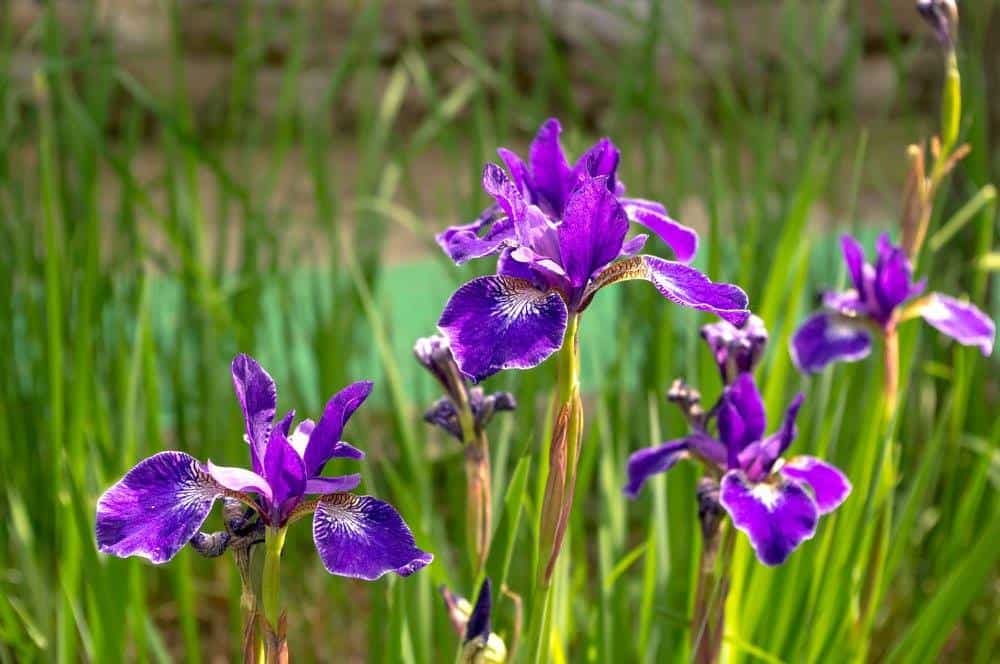
You may have heard of the view over the city from Piazzale Michelangelo but on either side of this paved and often crowded square stretch two romantic flower filled gardens where you can take in the city spires and enjoy a bit of green space entirely for free.
The rose garden was designed along with Piazzale Michelangelo in 1865 by Giuseppe Poggi, tasked with the development of the hill on occasion of Florence becoming the capital of the new Italian republic. The Rose garden offers wide paths, almost 400 varieties of Rose plants, lemon trees and even a Japanese Garden space donated by Florence’s sister city Kyoto in 1998. The garden also has 12 whimsical statues by Belgian artist Jean-Michel Folon.
The Iris (or “giglio”) is the symbol of Florence and the beautiful colors of these flowers growing from the gardens ponds and in glades between the olive trees is a magical experience. The Iris garden dates back to 1954 to house an International Iris Competition and now every year, the Italian Iris Society selects the most beautiful Iris hybrid to win a prize.
As the star of both of these gardens are the flowers, the best time of year to visit is in the spring. While the Rose garden is open year round, the Iris garden is only open for one month of the year.
Rose Garden:Entrance: Viale Giuseppe Poggi, 2
Open 9am-sunset year round. Closed January 1, December 25
Free entrance
Entrance: Viale Michelangelo, 82 (on the corner of Piazzale Michelangelo and Viale Michelangelo)
Open April 25-May 20
Monday-Friday 10:00-13:00, 15:00-19:30. Sat, Sun: 10:00-19:30
Free entrance
societaitalianairis.com/chi-siamo/giardino/
Garden of the Semplici: Historic Botanical Garden
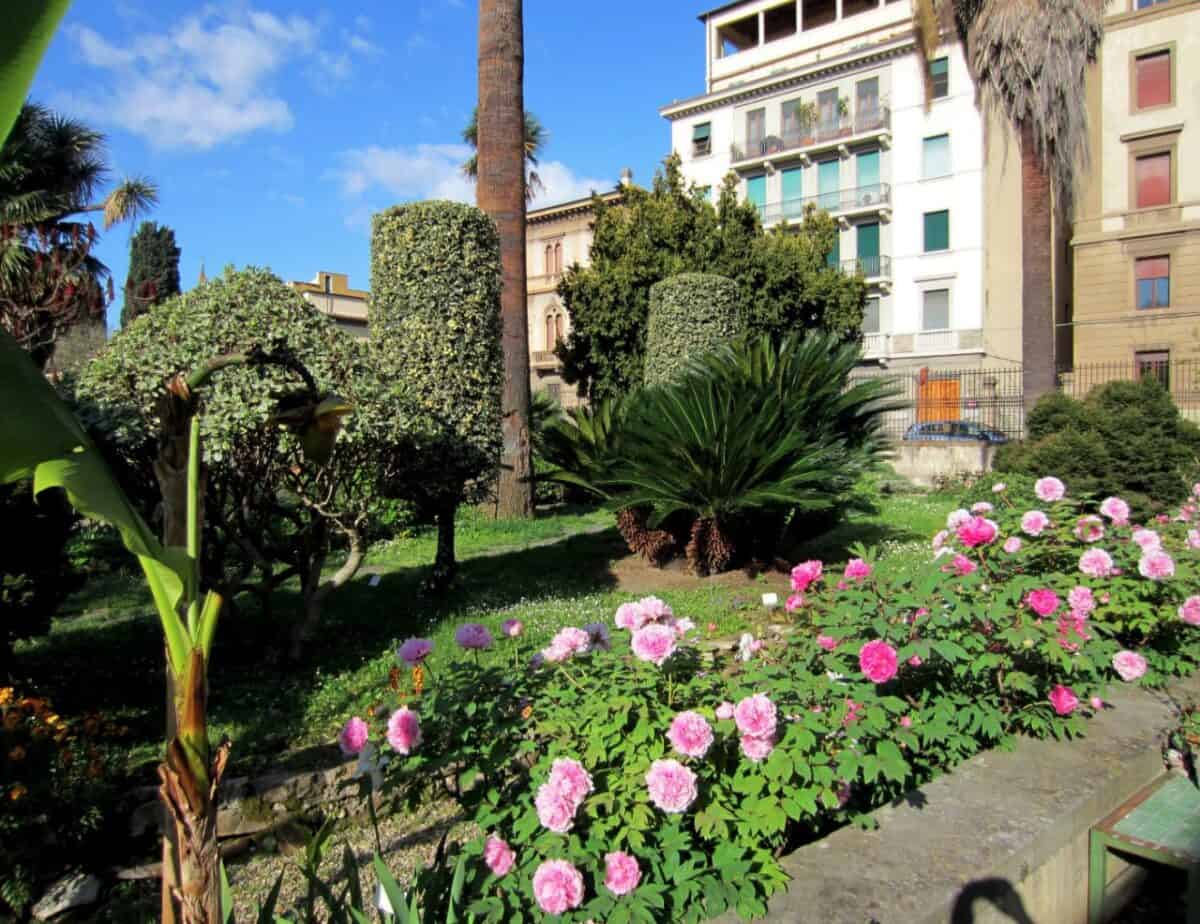
The “Giardino dei Semplici” has the distinction of being the third oldest botanical garden in the world after those of Padua and Pisa. It was founded in 1545 by Duke Cosimo I de Medici as an educational garden where vegetables and herbs were cultivated for study by medical students. Today it maintains many of the Renaissance characteristics of a wall garden, enclosed within the University of Florence. It’s notable for its centuries old specimens including a Giant Sequoia but the highlight still remains its historic “semplici” or medicinal plants, along with cactuses, carnivorous plants, orchids, ferns, azaleas and hot house varietals.
Entrance: University of Florence (Via Pier Antonio Micheli, 3)
Open from April – September: Tuesday to Friday 10am-7pm. From October – March: Saturday-Sunday 10:00-4:00pm. Closed Monday
Entrance fee: €6 full, €3 reduced
www.ortobotanicoitalia.it/toscana/unifirenze/
Stibbert Museum Garden: Mystical Forest
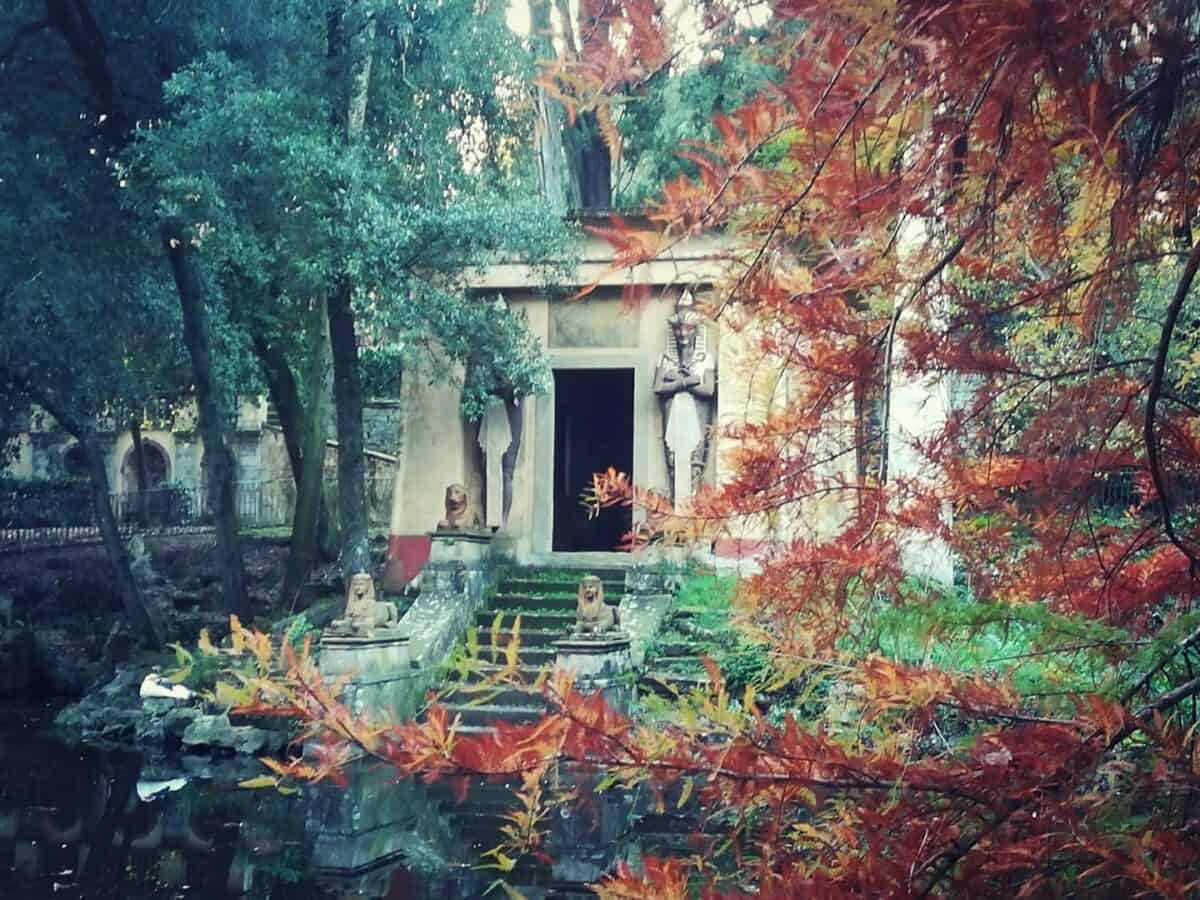
Stibbert Garden, located around the evocative museum of the same name, is a more forested and wild escape into nature adorned with dreamlike allusions to ancient history and mysticism. An Egyptian temple, sphynxes and obelisk perch on the side of one of the garden’s ponds and a Hellenistic temple domed with green and yellow majolica tyles offers a picturesque shelter. The neoclassical greenhouse houses citrus and tropical fruit trees. The eclectic mix of styles reflects the eclectic and archeological interests of the Stibbert family and the wonderful museum within the garden. The garden can be visited for free, independently of the museum.
Entrance: Via Stibbert, 26
April-October: 8:00-19.00. November-March: 8:00-17:00. Closed: Thursdays, January 1, Easter Sunday, May 1, August 15 and December 25.
Free entrance
Cascine Park: Wide Open Spaces & Events
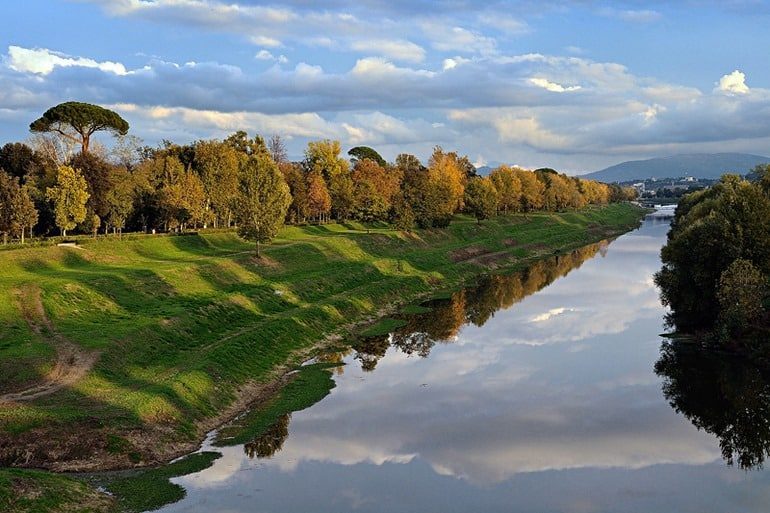
At well over 100 hectares, the Parco delle Cascine is Florence’s largest public park – the perfect place to come for a picnic on the sweeping green fields, a run down the wide pathways or a stroll through the forests of pine, cedar, elm and poplar trees. It used to be a farm estate and hunting ground for (you can probably guess) the Medici family in the 16th century but was officially opened up to the public by Elisa Baciocchi during the Napoleonic years in the early 1800s. Today it’s also the home to a weekly market on Tuesdays and sports two hippodromes, an open air stadium, a tennis club and outdoor “Le Pavoniere” swimming pool. The open amphitheater is used for concerts during the summer months.
Main entrance: Piazzale della Cascine
Always Open
Free entrance


